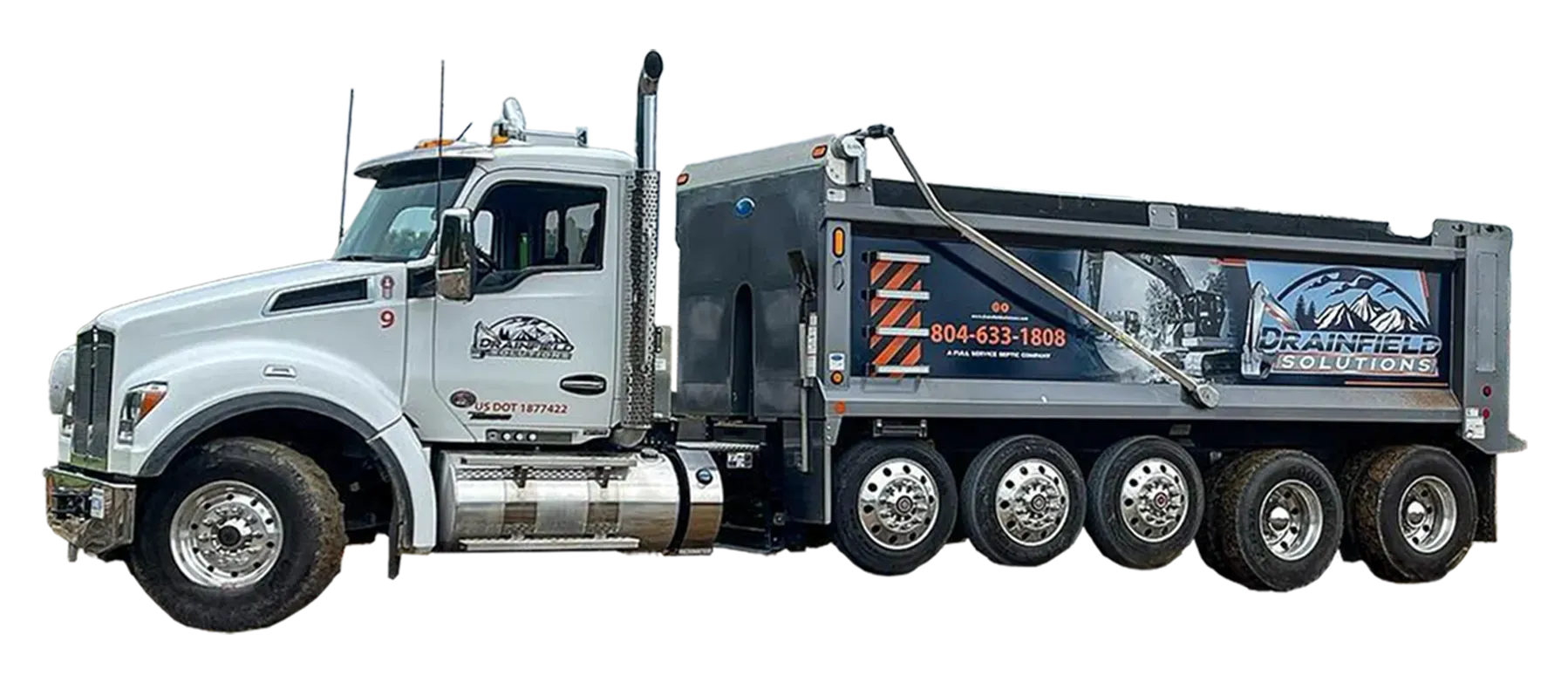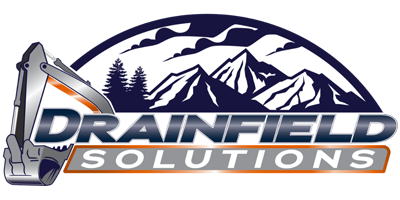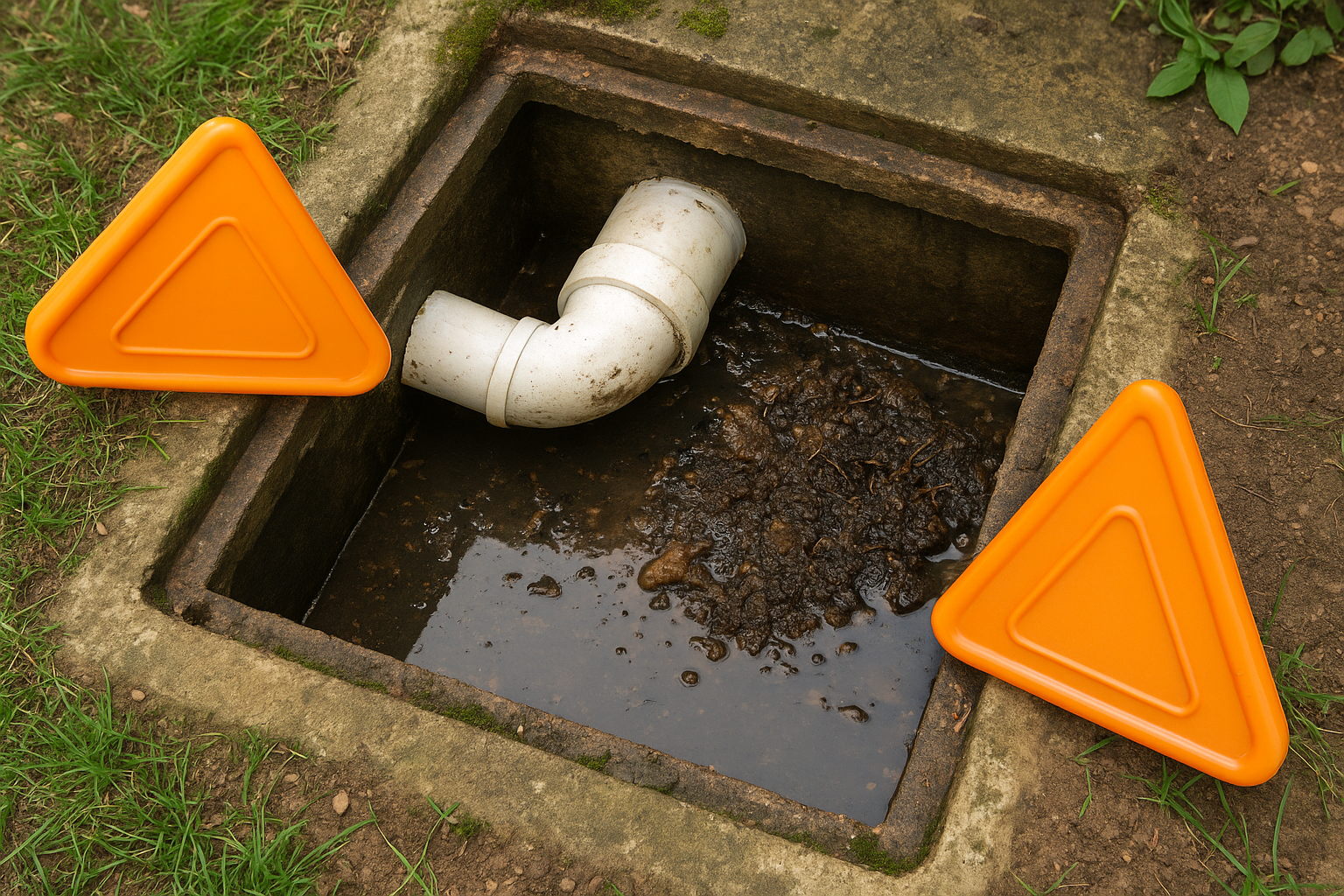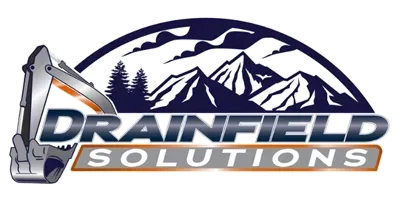
Seasonal Maintenance Tips for Your Septic Drainfield: Keep It Healthy Year-Round
January 9, 2025
Your drainfield works tirelessly behind the scenes, filtering wastewater and keeping your septic system running smoothly. But like anything else in your home, it needs a little TLC to stay in tip-top shape. Each season brings its own challenges for your drainfield, from heavy rains to freezing temperatures, and giving it the attention it needs can save you a lot of hassle—and money—down the road. Let’s dive into some seasonal maintenance tips to keep your drainfield happy and healthy all year long.
Spring: Shake Off the Winter Blues
As winter fades and the snow melts, your drainfield might be feeling a bit overwhelmed. Spring brings increased water flow from thawing ground, rain showers, and eager gardeners. Here’s how to help your drainfield adjust:
- Inspect for Water Pooling: Melting snow and spring rains can cause water to collect over your drainfield. If you notice puddles, check to ensure gutters and downspouts are directing water away from the area.
- Look for Damage: Winter frost can shift the soil, which might lead to exposed or damaged pipes. A quick inspection can catch issues early.
- Rethink Your Planting Plans: Spring is prime gardening season but avoid planting deep-rooted shrubs or trees near your drainfield. Opt for shallow-rooted grass or ground covers instead.
- Conserve Water: With all the extra moisture in the soil, limit your water use indoors to prevent overloading your septic system. Spread out laundry loads and fix any leaky faucets or toilets.
Spring is all about fresh starts, so take this time to check in on your drainfield and make sure it’s ready for the year ahead.
Summer: Keep It Cool Under Pressure
Summer is all about backyard barbecues, family gatherings, and fun in the sun. But all that activity can put extra strain on your septic system, especially your drainfield. Here’s how to keep things running smoothly:
- Limit Heavy Traffic: Whether it’s parking cars or setting up a volleyball net, keep heavy items and excessive foot traffic off your drainfield. Compacted soil can disrupt water absorption and damage pipes.
- Redirect Sprinklers: Avoid watering your lawn directly over the drainfield. It’s already getting plenty of moisture from the system.
- Monitor Water Usage: Summer guests can mean extra showers, laundry, and dishwashing. Encourage water conservation by spacing out these activities and reminding everyone to avoid unnecessary water use.
- Be Mindful of Landscaping: If you’re adding outdoor features like a patio or fire pit, make sure they’re well away from your drainfield. The area needs to stay clear for proper function.
Fall: Prepare for Cooler Days
As the leaves start to fall and temperatures drop, it’s time to prepare your drainfield for the colder months ahead. Fall maintenance is all about prevention and setting your system up for success during the winter.
- Rake Those Leaves: Keep your drainfield clear of leaves and debris. A thick layer can trap moisture and block sunlight, which your soil needs to stay aerated and healthy.
- Aerate the Soil: If the soil over your drainfield feels compacted, fall is a great time to aerate it. Use a manual aerator to loosen the soil without damaging pipes.
- Pump Your Tank: If it’s been a few years since your last septic tank pumping, schedule it now. A freshly pumped tank reduces the risk of backups during the winter when digging is more challenging.
- Inspect and Winterize: Take a close look at your system for any signs of trouble, such as slow drains or soggy spots. Address issues now to avoid frozen pipes later.
Winter: Protect Your Drainfield from the Chill
Winter can be tough on your drainfield. Freezing temperatures, snow, and ice can create unique challenges, but a few simple steps can help your system weather the season:
- Insulate Your Drainfield: A layer of mulch, straw, or even a thick layer of grass can help insulate the soil and prevent freezing.
- Keep It Clear: Avoid piling snow, firewood, or other heavy items on your drainfield. The extra weight can compact the soil or damage pipes.
- Monitor Water Use: During the holidays, your system might see extra use from guests. Spread out high-water activities like laundry or dishwashing to avoid overloading the system.
- Watch for Warning Signs: If you notice slow drains, gurgling sounds, or unusual odors, call a professional right away. Frozen or damaged pipes can cause serious issues if left unchecked.
Year-Round Drainfield Care Tips
While each season comes with its own challenges, some maintenance practices are important all year long:
- Regular Septic Tank Inspections: Schedule professional inspections to catch small issues before they turn into big problems.
- Mind What You Flush: Stick to flushing only toilet paper and human waste. Avoid flushing wipes, feminine hygiene products, grease, or anything else that won’t break down.
- Conserve Water: Reduce water usage wherever possible to avoid overloading your system. Fix leaks, install water-efficient fixtures, and spread out water-heavy activities.
- Know Your System: Familiarize yourself with the location of your drainfield and avoid planting trees, driving, or building over it.
Consistency is key to keeping your drainfield functioning properly, no matter the season.
When to Call the Professionals
Sometimes, even with the best maintenance efforts, things go wrong. If you notice any of the following issues, it’s time to call in a professional:
- Standing water or soggy patches above your drainfield.
- Foul odors near the drainfield or inside your home.
- Slow or gurgling drains.
- Unusually lush or green grass over the drainfield.
At Drainfield Solutions in Central Virginia, we’re here to help you navigate any drainfield issues that come your way.
Keep Your Drainfield Happy Year-Round
Your drainfield might not be the flashiest part of your home, but it’s a crucial one. A little seasonal maintenance goes a long way in keeping it healthy and avoiding costly repairs. By staying proactive and giving your system the attention it deserves, you can enjoy peace of mind knowing your septic system is working just as hard as you are.
At Drainfield Solutions, we specialize in helping homeowners in Tappahannock, Warsaw, Aylett, Culpepper, Bowling Green, Ruther Glen, Fredericksburg, and Mechanicsville protect their septic drainfields and keep their septic systems running smoothly. Contact us today at 804-633-1808 or visit our contact page to schedule an inspection or get expert advice tailored to your system.
Share Post
Latest Posts
Ready to Take the Next Step?
Whether you're in need of a system inspection or regular maintenance, Drainfield Solutions is here to help. Get in touch today for reliable service you can trust.






